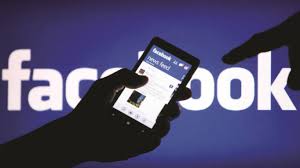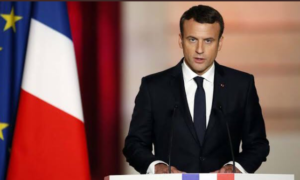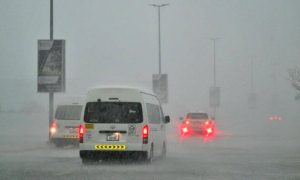Facebook will be working on removing conspiracy theories and fake claims about the coronavirus from its platform in an effort to battle the spread of misinformation about the outbreak. The coronavirus outbreak has killed more than 200 people so far and the World Health Organisation (WHO) has declared it as an emergency.
Facebook’s has said that it is going to actively work on reigning in false and dangerous claims. The social media site cited the example of how “drinking bleach” is being circulated as a “cure” and said that they will “start to remove content with false claims or conspiracy theories that have been flagged by leading global health organizations and local health authorities that could cause harm to people who believe them.”
Facebook already has a policy of removing content that can be deemed as a threat to users and can cause physical harm and they have used to it in the past to remove ‘vaccine-related misinformation’ in rare cases.
Information and misinformation about the novel coronavirus has grown to take a life of its own on social media and that has put Facebook on the defensive “about their efforts to curd the spread of false information”. Researchers and journalists have been documenting cases that are spreading misinformation about the virus including miracle cures and racist explanations about the virus’ origin and the numbers of hacks are growing by the day.
Besides expanding its removal policy, Facebook is also doing its usual “fact-checking with independent third-party partners, notifying users who may have shared inaccurate prevention tips and disseminating verified advice”.
“The company is conducting proactive sweeps to find and remove as much of the misleading content as it can,” explained Kang-Xing Jin, Facebook’s head of health, and added that Facebook will block or restrict hashtags on Instagram that may be used to spread fake news.
Facebook is already putting prompts and modules in its News Feed that are “designed to steer users to accurate information, and it is also taking guidance from the WHO”.
“When people search for information related to the virus on Facebook or tap a related hashtag on Instagram, we will return a dedicated information module with credible information,” Jin wrote. “Free advertising credits have been provided to health organizations looking to run coronavirus education campaigns on Facebook and Instagram,” reported Bloomberg.
The third prong to Facebook’s response to this health emergency is a partnership with Harvard University’s School of Public Health and Taiwan’s National Tsing Hua University, “which the company is providing with aggregated and anonymized mobility data and high resolution population density maps to help inform their forecasting models”.
Jin said that Facebook may add more academic partners for the cause but also warned that “not all of these steps are fully in place” yet and the rollout of all the measures will take time.
It is notable that Facebook has acknowledged ‘misinformation’ as a real threat and the step of actually removing this misleading content and not just labelling it is significant. You would remember that Facebook had refused to ‘fact-check’ political advertising not too long ago.
However, amidst all these measures, information shared on private groups on Facebook still lie outside the reach of Facebook’s fact-checking apparatus. These private groups have been known to “incubate conspiracies”.
What are the other channels doing?
Twitter, in its efforts to tackle the coronavirus misinformation issue, is directing users to reliable sources and prompting users who search for ‘coronavirus’ to visit the Centers for Disease Control and Prevention website. Twitter claims that it has not seen an ‘uptick’ of disinformation since the virus became a worldwide problem and they have a policy in place against users trying to ‘mislead’ others with “deceptive activity”.
Google has launched one of its “so-called SOS Alerts for the coronavirus crisis, partnering with the WHO to issue news updates and resources to anyone searching about it”. The alert will be the top thing anyone sees, offering safety tips and the latest updates from the WHO, Bloomberg reported.
YouTube isn’t yet taking any measures particular to the coronavirus yet, but it is “battling the rush to hurried misinformation by showing short previews of text-based news articles about the outbreak in search results”.




























 WhatsApp us
WhatsApp us
Pingback: Web Site
Pingback: visit our website